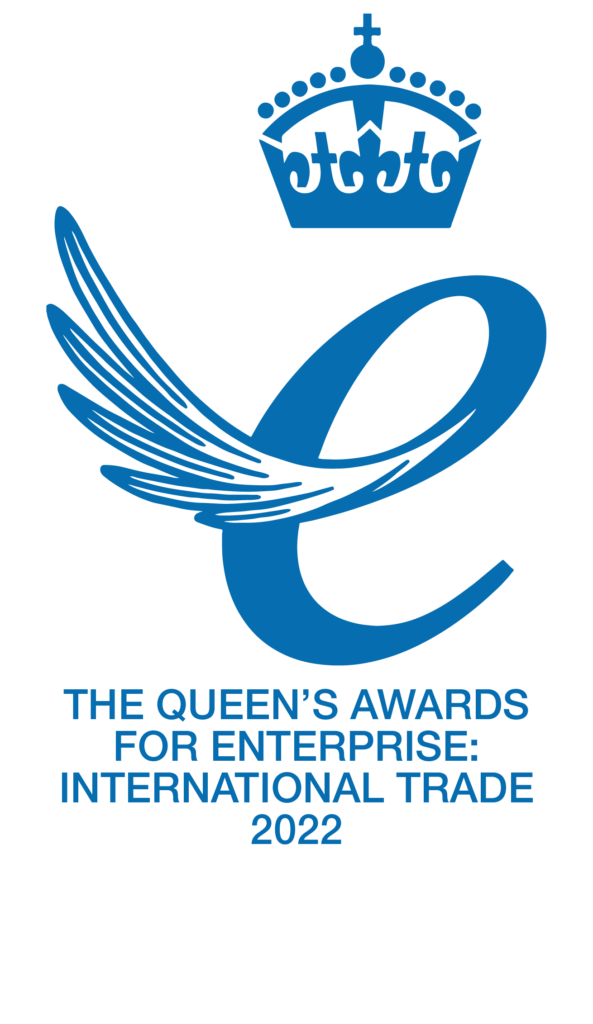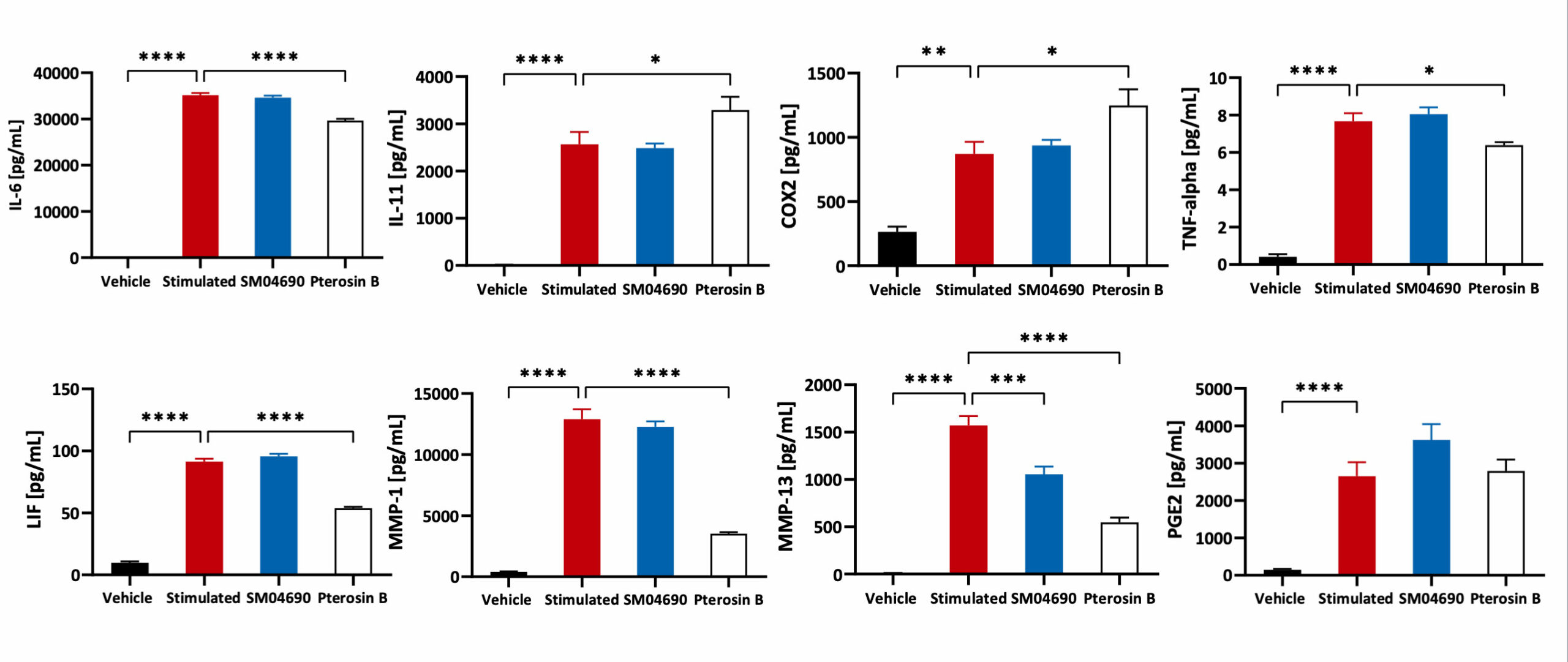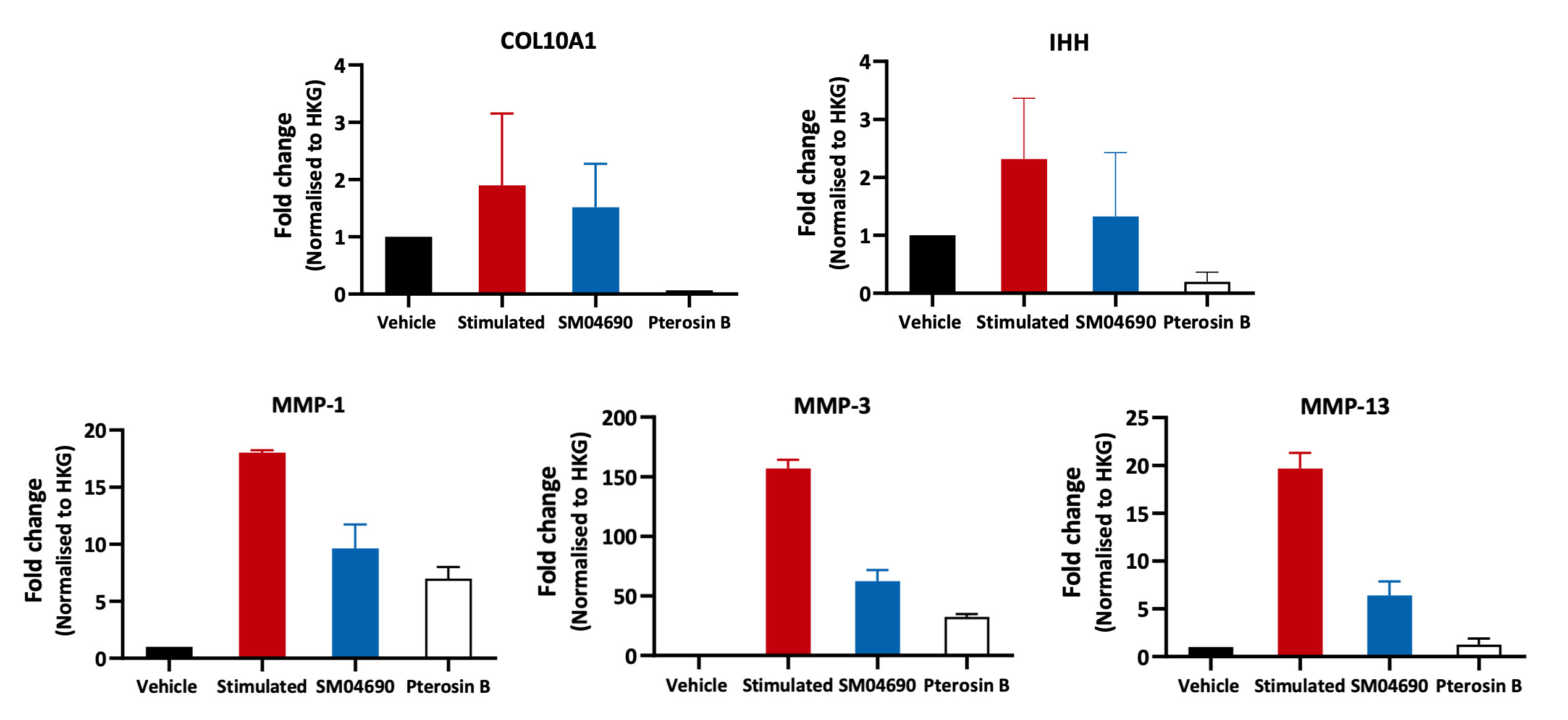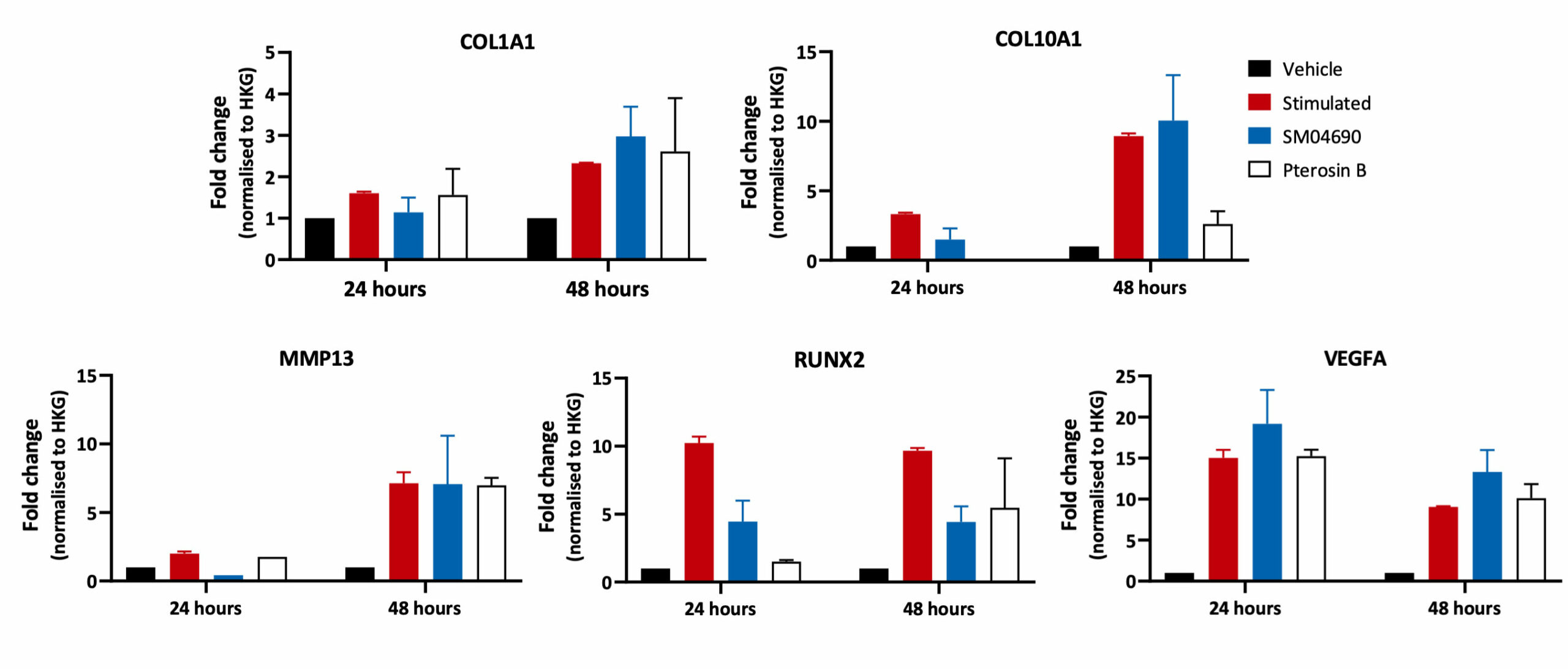Inflammation Assays
Osteoarthritis (OA)
Osteoarthritis is the most common type of arthritis affecting preferentially hands, knees, hips, lower back and neck. It occurs when the smooth cushion between bones, called cartilage, become damaged after a sustained inflammatory response and thus joints become painful, swollen and hard to move. Pain, reduced mobility and adverse effects from medications could substantially affect the quality of life.
Osteoarthritis Cartilage Degradation in vitro model
Primary healthy human chondrocytes were pre-treated with SM04690 and Pterosin B, followed by stimulation with TNFα and Oncostatin M for 6 hours. Cell lysates were analysed for cartilage degradation markers using Luminex Quantigene™ Assay. Gene expressions were normalised to house-keeping genes (HKG- GAPDH and HPRT1) and fold changes calculated relative to the untreated (vehicle control) (n=3±SEM).
Osteoarthritis Cartilage Anabolism in vitro model
Primary healthy human chondrocytes were pre-treated with SM04690 and Pterosin B, followed by stimulation with TGFβ1 for 24 and 48 hours. Cell lysates were analysed for markers of cartilage anabolism (COL2A1; SOX9 and ACAN) using Luminex Quantigene™ Assay. Gene expressions were normalised to house-keeping genes (HKG- GAPDH and HPRT1) and fold changes calculated relative to the untreated (vehicle control) (n=3±SEM).
Osteoarthritis Hypertrophy in vitro model
Primary healthy human chondrocytes were pre-treated with SM04690 and Pterosin B, followed by stimulation with TGFβ1 for 48 hours. Cell lysates were analysed for hypertrophy markers using Luminex Quantigene™ Assay. Gene expressions were normalised to house-keeping genes (HKG- GAPDH and HPRT1) and fold changes calculated relative to the untreated (vehicle control) (n=3±SEM).
Request a consultation with Cellomatics Biosciences today
Our experienced team of in vitro laboratory scientists will work with you to understand your project and provide a bespoke project plan with a professional, flexible service and a fast turnaround time.
To request a consultation where we can discuss your exact requirements, please contact Cellomatics Biosciences.














